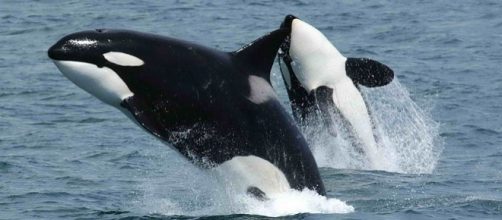The dangers of Plastic pollution are well known because these are non-biodegradable products, and are not absorbed by nature. They remain till eternity and pose problems to all living beings by clogging the drainage systems and finding their way into the oceans. They finally land up as litter on the beaches. These tiny fragments of plastic are dangerous for Marine Animals and do not spare even the large creatures like the Whales and whale sharks.
Independent UK reports about a new study undertaken by the University of Siena. The study has found that even large marine creatures are ingesting considerable amounts of microplastics which can be harmful.
What are microplastics?
Plastic products that are less than 5mm in size fall in the category of microplastics. One example of them are microbeads that form a part of health and beauty products. Another is the small size plastics that are created by the gradual breakdown of the larger size of plastics. The danger stems from the fact that plastic contains toxic substances like heavy metals and phthalates, and when whales swallow the water, these unwanted items enter their system. Their daily intake of water can be in hundreds to thousands of cubic meters which can lead to issues of wellbeing.
The study was conducted on whale sharks in the Sea of Cortez and on fin whales in the Mediterranean Sea.
The findings have confirmed that marine animals are exposed to toxic chemicals. Such exposure to plastic-associated toxins threaten their health and can have far-reaching after effects on their body functions. According to Professor Maria Cristina Fossi of the University of Siena, it can be concluded that the origin of these microplastics is their feeding ground.
Remedial action to contain plastic pollution
In order to curb the ill effects of plastic wastes, it is necessary to raise awareness among the people. Many authorities have banned the use of plastic products, and in the UK microbeads have been added to the list of banned items along with water bottles and disposable coffee cups. The extent of damage to large marine animals like whales and whale sharks is difficult to establish.
However, an examination of tissue samples taken from living animals has revealed the presence of toxic chemicals from microplastics in their bodies.
Plastic is extensively used to make a huge range of throwaway or "single use" products. According to BBC, UN oceans Chief Lisa Svensson has labeled this nature of pollution as a planetary crisis because these destroy the ecosystem and pose grave dangers to larger marine creatures like turtles, dolphins, and seals. They can get entangled in these wastes, or mistake them for food. An example is the jellyfish. It is food for turtles but they cannot distinguish between plastic bags and jellyfish and the intake of these items could lead to internal blockages and end in death.


